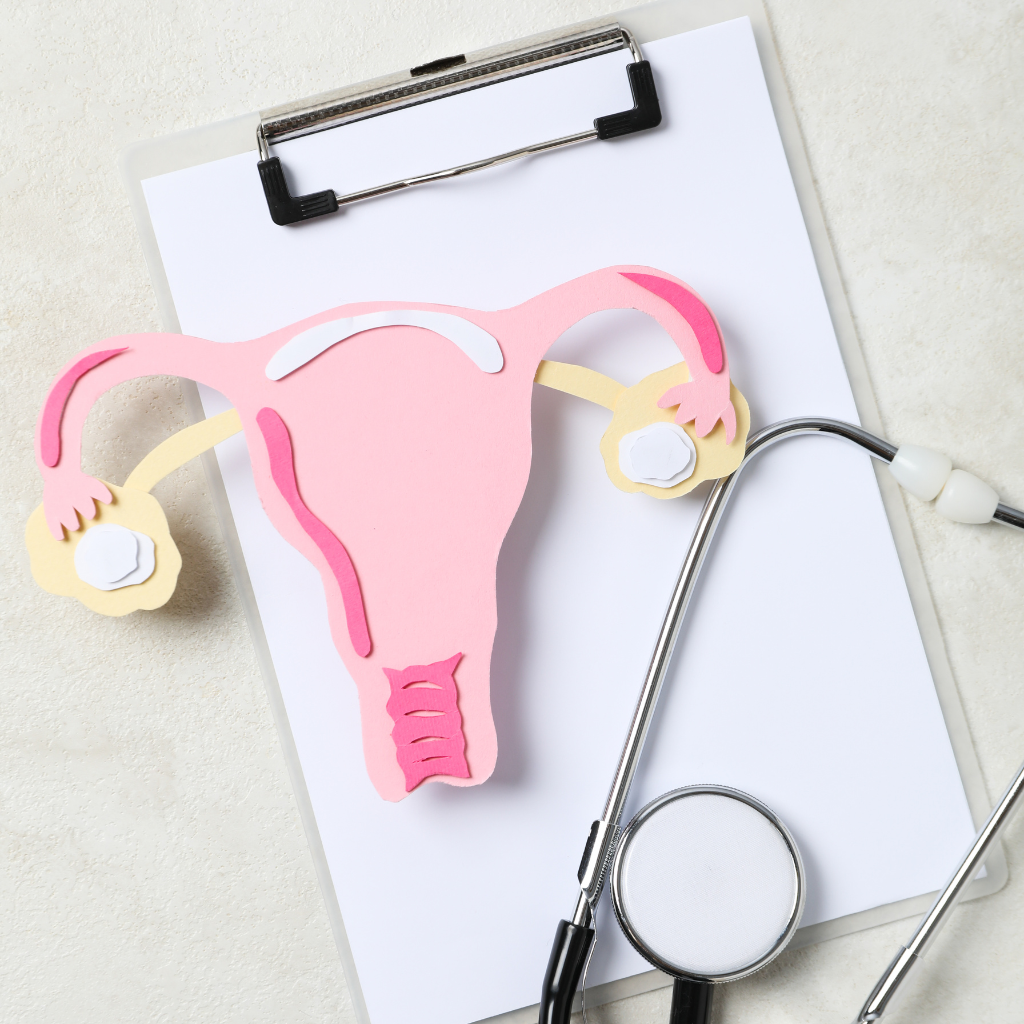Welcome to July 2023, a month dedicated to raising awareness about fibroids. Fibroids are non-cancerous growths that develop in the uterus, affecting millions of women worldwide. This article aims to shed light on the importance of Fibroids Awareness Month and provide you with ways to show your support.
Whether you’re personally impacted by fibroids or passionate about spreading awareness, this article will equip you with valuable insights and actionable steps. So, let’s dive in and explore the significance of July 2023 as Fibroids Awareness Month.
What Are The Causes Of Uterine Fibroids?
The exact causes of uterine fibroids, also known as leiomyomas, are still not fully understood. However, several factors are believed to contribute to their development.
Hormonal Imbalance: Estrogen and progesterone, the two main female hormones, play a role in the growth of fibroids. These hormones are responsible for regulating the menstrual cycle and preparing the uterus for pregnancy. An imbalance in the levels of estrogen and progesterone can promote the growth of fibroids.
Genetic Factors: There appears to be a genetic component to the development of fibroids. If you have a family history of fibroids, you may be at a higher risk of developing them yourself.
Race and Ethnicity: Research suggests that certain racial and ethnic groups, particularly African American women, have a higher incidence of fibroids. The reasons for this disparity are not yet fully understood.
Age: Fibroids are most commonly diagnosed in women between the ages of 30 and 40. They tend to shrink after menopause when estrogen levels decrease.
Obesity: Being overweight or obese has been associated with an increased risk of developing fibroids. It is believed that excess body fat can lead to higher estrogen levels, which may contribute to fibroid growth.
Dietary Factors: Certain dietary choices, such as consuming a diet high in red meat and low in fruits and vegetables, have been associated with a higher risk of fibroids. On the other hand, diets rich in fruits, vegetables, and whole grains may have a protective effect.
Other Factors: Other factors that may influence the development of fibroids include stress, environmental toxins, and certain medical conditions such as polycystic ovary syndrome (PCOS).
July 2023 Is Fibroids Awareness Month: Why It’s Important

Fibroids Awareness Month is a crucial initiative that aims to educate, advocate, and support individuals affected by fibroids. By dedicating an entire month to this cause, we can collectively raise awareness, promote early detection, and improve the lives of those living with fibroids. Let’s understand why it’s important to focus on fibroids during July 2023 and beyond.
Fibroids: A Common Concern
Most women are impacted by fibroids, with up to 80% of women experiencing these noncancerous tissue growths in the uterus by the age of 50. This staggering statistic highlights the importance of understanding fibroids and their potential implications. While some women may not experience symptoms, others face significant challenges that can affect their overall well-being.
Disproportionate Impact on African American Women
Fibroids disproportionately affect African American women, with a prevalence rate three times higher than other races. This makes Fibroid Awareness Month particularly relevant within the African American community. By highlighting this disparity, we can address the unique challenges faced by these women and ensure that they have access to the necessary information and support.
Breaking the Stigma and Enhancing Knowledge
One of the key obstacles in addressing fibroids is the social stigma that surrounds discussions about gynaecological health. Due to this stigma, many women are unaware of the available treatment options or even what fibroids are. Fibroid Awareness Month plays a vital role in breaking this silence and promoting open conversations. By providing accurate information, we can empower women to make informed decisions about their health.
Encouraging Timely Treatment and Support
Suffering in silence is a common experience for many women with fibroids, often delaying seeking treatment for years. Fear of undergoing a hysterectomy as the only solution can further discourage women from seeking help. However, it’s crucial to emphasize that there are numerous minimally invasive treatment options available. Fibroid Awareness Month serves as a platform to educate women about these alternatives, encouraging them to seek timely and appropriate care.
Inspiring Women to Share Their Stories
Participating in Fibroid Awareness Month offers an opportunity to make a positive impact by sharing personal stories and experiences. By speaking out and sharing our journeys, we can inspire others, provide a sense of solidarity, and break the cycle of silence surrounding this condition. Through the power of storytelling, we can create a supportive community that uplifts and empowers women affected by fibroids.
Here Is A List Of Ways To Show Your Support During Fibroid Awareness Month:

Wear White: Join the National Wear White Day on July 1st to show solidarity and raise awareness.
Share on Social Media: Use the hashtag #FibroidAwarenessMonth to spread the word and educate others.
Attend Events: Participate in Fibroid Awareness Events organized by organizations such as Fibroid Fighters and USA Fibroid Centers.
Educate Yourself: Learn about uterine fibroids, their symptoms, and available treatment options.
Share Personal Experiences: Share your own story or listen to others who have been affected by fibroids. Sharing experiences can help raise awareness and provide support.
Support Research: Contribute to organizations that focus on fibroid research and advocacy efforts.
Advocate for Access to Care: Speak up for improved access to healthcare and treatment options for women with fibroids.
Encourage Screening: Encourage women to get screened for fibroids and understand their risk factors.
Support Fibroid Foundations: Contribute to or volunteer with organizations dedicated to supporting women with fibroids.
Stay Informed: Keep up-to-date with the latest developments in fibroid research, treatment options, and advocacy efforts.
Frequently Asked Questions (FAQs)
Q: What are the common symptoms of fibroids?
A: Common symptoms of fibroids include heavy or prolonged menstrual periods, pelvic pain or pressure, frequent urination, constipation, and lower back pain. However, some individuals may experience no symptoms at all, making regular check-ups important.
Q: Are fibroids only a concern for women of a certain age?
A: No, fibroids can affect women of all ages. While they are more common in individuals between 30 to 50 years old, fibroids can develop at any age after puberty. It’s essential for women of all ages to be aware of the signs and symptoms associated with fibroids.
Q: Can fibroids affect fertility?
A: Yes, in some cases, fibroids can affect fertility. Depending on the size, location, and number of fibroids, they can interfere with the implantation of a fertilized egg or lead to complications during pregnancy. If you’re planning to conceive and have concerns about fibroids, consult with your healthcare provider for guidance.
Q: What are the available treatment options for fibroids?
A: Treatment options for fibroids vary depending on factors such as the severity of symptoms, the individual’s age, and their desire for future pregnancies. Some common treatment options include medication, minimally invasive procedures, and surgery. Your healthcare provider can recommend the most suitable treatment approach for your specific case.

Q: Can fibroids turn cancerous?
A: Fibroids are typically non-cancerous (benign) growths. However, in rare cases, a type of cancer called leiomyosarcoma can develop within a fibroid. It’s important to note that leiomyosarcoma is very rare, accounting for less than 1% of all uterine cancers. Regular check-ups and monitoring can help detect any concerning changes.
Q: How can I support a loved one dealing with fibroids?
A: Supporting a loved one dealing with fibroids starts with being empathetic, understanding, and patient. Listen to their concerns, offer emotional support, and encourage them to seek medical advice. Accompanying them to appointments or providing practical assistance can also make a significant difference in their journey.
Conclusion
July 2023 marks Fibroids Awareness Month, providing an opportunity to shed light on a condition that affects millions of individuals worldwide. By raising awareness, advocating for resources, and supporting those impacted by fibroids, we can make a positive impact on their lives. Remember, small actions can lead to significant change. Let’s come together and show our support during this important month and beyond.

